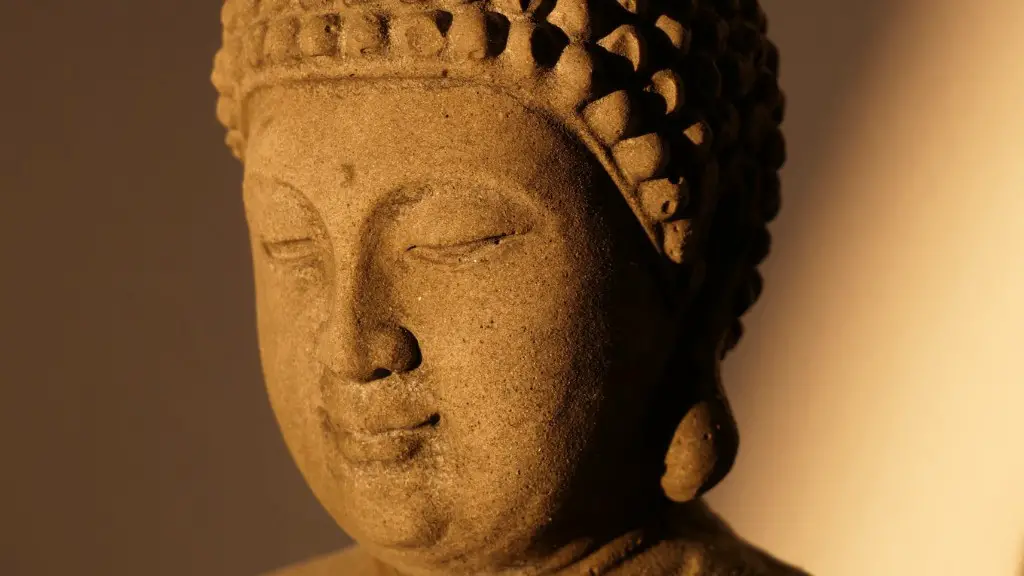The Origin Story: Brahma and Shri Laxmi Devi
The origin story of the God of Money in Hinduism is closely linked to the creation of Shakti. According to Hindu mythology, Brahma was the first God to create Shakti, also known as the power of Universal Creation. From this power emerged Shri Laxmi Devi, the Goddess of Wealth. She is the consort of Vishnu, the sustainer of creation and prosperity. Shri Laxmi Devi was the divine entity that represented fortune, prosperity, and abundance.
Shri Laxmi Devi is often depicted as a four-armed Goddess with a petite body. In each of her four hands she holds a lotus, a conch shell, a book, and a pot of jewels. Shri Laxmi Devi is usually clothed in gold and is revered as the Goddess of Wealth. Unlike some of the other deities in Hinduism, She never carries a weapon. This symbolizes the peaceful nature of money and the prosperity it brings.
Honoring Shri Laxmi Devi
In Hinduism, it is believed that money is the embodiment of Shri Laxmi Devi. Hence, the celebration of this Goddess and her blessings is crucial to ensure continued prosperity. Diwali, the Festival of Lights, is the primary day when Shri Laxmi Devi is traditionally honored. During this festival, houses are decked in decorations and people perform pooja and other sacred rituals to revere her. Usually, the coins of denominations are placed in the pooja trays, along with other precious items, as a symbol of respect and wellbeing.
Diwali is considered to be the most important day for the Goddess Shri Laxmi Devi to be honored and is also seen as a day to perform charity and spread prosperity. One of the events that take place during the festival is candlelight procession or Yatra, in which devotees carry lit lamps and offerings for Shri Laxmi Devi. This traditional practice is believed to attract the Goddess’ grace and bring wealth, health, and prosperity to all those who observe the ritual.
Worship Practices and Blessings
The worship of Shri Laxmi Devi is an important ritual in Hinduism, with some families even setting up a special shrine dedicated to the deity. During Lakshmi Puja, which occurs during the Diwali festival, devotees chant mantras and offer flowers and other items in veneration of the Goddess. It is believed that this ritual has the power to bring happiness, good luck, and prosperity.
In contemporary times, Shri Laxmi Devi’s blessings manifest differently. Businesses may perform a Lakshmi Puja to invoke her blessings for abundance and long-term success. In modern households, the Goddess is believed to bring financial security to family members. Shri Laxmi Devi is also venerated by adults, especially when they seek success, wealth, and stability in their personal and professional lives.
Symbolism of Shri Laxmi Devi
The symbolism of Shri Laxmi Devi is multifaceted. She is often seen wearing a beautiful crown and a garland of wealth, which speaks of royalty and limitless abundance. Additionally, her seated figure also signifies the auspiciousness of her energy. Her physique embodies grace and beauty, hinting at the delicate balance of wealth, and the patience and responsibility needed to preserve it.
Shri Laxmi Devi’s four hands are believed to symbolize four aspects of life:: Dharma or righteousness, Kama or desires, Artha or wealth and desire, and Moksha or liberation. These components, when balanced, are believed to lead to spiritual and material fulfilment. As the goddess of wealth, Shri Laxmi Devi is an important figure in Hinduism, as she acts as a symbol that can be embraced to manifest prosperity, abundance, and happiness.
Financial Acumen
It is believed that in order to receive Shri Laxmi Devi’s blessings and invoke her protection in money matters, a person must first exhibit qualities of financial acumen. For example, people should practice budgeting, saving, and investing their money wisely. Additionally, they must possess the knowledge and courage to make sound decisions that would bring positive returns in the future.
In Hinduism, gaining financial acumen goes beyond understanding the basics of money management. It also consists of striving to maintain integrity in one’s dealings with money, following ethical values, and having compassion for others. These attributes will help a person level up in his or her acquisition of wealth and resources.
The Importance of Wealth Creation
Honoring the Goddess of Wealth encourages a person to focus on the importance of creating wealth. It is believed the Goddess Laxmi Devi creates an energy around money that helps individuals observe and understand the potential to contribute and create something valuable. If a person sets a goal to create and accumulate wealth, it can help them foster a more productive attitude and hone their entrepreneurial skills in the long run.
When a person works towards creating wealth, Shri Laxmi Devi’s blessing is important, as it teaches people the accountability they must have to the task at hand, and the responsibility they must take. It also encourages individuals to make informed decisions and responsibly handle their finances. Wealth creation in Hinduism is seen as a result of morality and ethical behaviour, rather than as a mere pursuit of gains.
Conclusion of Wealth
Overall, Shri Laxmi Devi is the divine being that symbolizes all the power of wealth and gives people the strength and courage to become prosperous in their lives. By offering donations, prayers, and reverence, a person can attract the blessings and protection of this Goddess, who is seen as the source of all wealth. Additionally, in order to receive her blessings, people must learn the importance and ethics of financial acumen. Wealth creation, in Hinduism, is seen as a gift from Shri Laxmi Devi, which encourages individuals to be mindful of their responsibilities and opportunities regarding money.
